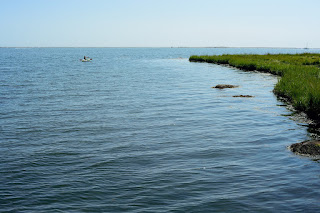Growth, in baby steps.
I am an aspiring guitarist. Amongst all the things I am now, only this and photography go back to my preteen days. This past month I was asked to provide music for a solstice service at the local Unitarian Universalist congregation. I decided to challenge myself with classical pieces as I have been wanting to re-develop this aspect of my talent. I learned much in the process.
Vivaldi's "Four Seasons" is one of my favorite classical pieces, Spring and Summer seemed fitting for the subject. Gershwin's Summertime was suggested by the requester. Luckily I already play this with my jazz standard band, Dragonfly Diversion, so I only had to practice singing that song.
I found sheet music easily enough. Fortunately I found abbreviated, simplified versions of the first movements of each. Our church's prelude and offering are generally short pieces, and my talents would not allow the full concertos.
Both transcriptions I found were in drop D tuning. I was no fan of alternate tunings, but under the time constraints, and because the drone D gave such a feel to Spring, I charged ahead with learning both, the first ever pieces of alt tuning that I have ever tackled. My opinion is.... evolving.
Spring went easily enough, though the close fingering was a bit of a challenge. It was memorized by the end of the month, though I am even still struggling with some basic chord changes. This is because of the unique fingering required to reach some of the bass line due to the alternate tuning. Indeed, I changed one or two chords, moving the bass or a harmonizing note up or down an octave just to ease my fingers.
Search for "Vivaldi Summer guitar" and one will find videos of heavy-metal rigs killing (in good and bad ways) the last movement, "Presto". Not my thing, and if it were it would still be inappropriate for even a UU service. Luckily the sheet music I found was the first movement, and included tabs. I learned the piece using the tabs exclusively, another first for me. It was a cop out, really, I have trouble with sight reading above high A, and the bass notes along with drop D tuning were throwing me off considerably. There was also considerable stretching that I previously thought beyond my capabilities. Again, I had to change a few fingerings to placate my fingers or my ears, but I persevered, and by performance day I was able to render a recognizable albeit slowed version of the first movement. And a passable five fret neck wide stretch.
I've been playing "Summertime" for years. I've never sung it, however. Indeed there are only a handful of songs that I am confident enough to belt outside the shower. Practice it I did, in the manner of celebrating the season rather than my usual lullaby. A funny thing happened as I practiced it along these other pieces. My bass line suddenly went from a simple descent to an bouncy and earnest walking bass line akin to what was used in the version of "Spring" I was using.
An additional proof that I had progressed revealed itself at a Dragonfly Diversion gig the day prior to the service. I sang along with our singer. I am not claiming to have her tone nor her pitch, but it was a passable voice, and I was even able to include a few harmonizing notes. This is part of our growth from a weekly sing along gig, but I was accompanying her on any of the jazz standards where my voice might add something. Confidently. Well, at least my voice wasn't wavering. I thought I could only sing those folk tunes with my -not the early years- Dylanesque voice.
My horizons are opened. Alternate tunings are no longer taboo. Practiced singing will be added to my personal set list. Two more classical movements are on my practice list, and hopefully will expand to the entire concertos. I will check a full title of classical pieces so I learn them in the proper key henceforth. Sadly, I learned Spring in D rather than the correct E. But progress is progress. I'm certainly no Segovia, no Adam Trudel, but I am better than I was. I hope to continue this improvement, one musical piece at a time.
Vivaldi's "Four Seasons" is one of my favorite classical pieces, Spring and Summer seemed fitting for the subject. Gershwin's Summertime was suggested by the requester. Luckily I already play this with my jazz standard band, Dragonfly Diversion, so I only had to practice singing that song.
I found sheet music easily enough. Fortunately I found abbreviated, simplified versions of the first movements of each. Our church's prelude and offering are generally short pieces, and my talents would not allow the full concertos.
Both transcriptions I found were in drop D tuning. I was no fan of alternate tunings, but under the time constraints, and because the drone D gave such a feel to Spring, I charged ahead with learning both, the first ever pieces of alt tuning that I have ever tackled. My opinion is.... evolving.
Spring went easily enough, though the close fingering was a bit of a challenge. It was memorized by the end of the month, though I am even still struggling with some basic chord changes. This is because of the unique fingering required to reach some of the bass line due to the alternate tuning. Indeed, I changed one or two chords, moving the bass or a harmonizing note up or down an octave just to ease my fingers.
Search for "Vivaldi Summer guitar" and one will find videos of heavy-metal rigs killing (in good and bad ways) the last movement, "Presto". Not my thing, and if it were it would still be inappropriate for even a UU service. Luckily the sheet music I found was the first movement, and included tabs. I learned the piece using the tabs exclusively, another first for me. It was a cop out, really, I have trouble with sight reading above high A, and the bass notes along with drop D tuning were throwing me off considerably. There was also considerable stretching that I previously thought beyond my capabilities. Again, I had to change a few fingerings to placate my fingers or my ears, but I persevered, and by performance day I was able to render a recognizable albeit slowed version of the first movement. And a passable five fret neck wide stretch.
I've been playing "Summertime" for years. I've never sung it, however. Indeed there are only a handful of songs that I am confident enough to belt outside the shower. Practice it I did, in the manner of celebrating the season rather than my usual lullaby. A funny thing happened as I practiced it along these other pieces. My bass line suddenly went from a simple descent to an bouncy and earnest walking bass line akin to what was used in the version of "Spring" I was using.
An additional proof that I had progressed revealed itself at a Dragonfly Diversion gig the day prior to the service. I sang along with our singer. I am not claiming to have her tone nor her pitch, but it was a passable voice, and I was even able to include a few harmonizing notes. This is part of our growth from a weekly sing along gig, but I was accompanying her on any of the jazz standards where my voice might add something. Confidently. Well, at least my voice wasn't wavering. I thought I could only sing those folk tunes with my -not the early years- Dylanesque voice.
My horizons are opened. Alternate tunings are no longer taboo. Practiced singing will be added to my personal set list. Two more classical movements are on my practice list, and hopefully will expand to the entire concertos. I will check a full title of classical pieces so I learn them in the proper key henceforth. Sadly, I learned Spring in D rather than the correct E. But progress is progress. I'm certainly no Segovia, no Adam Trudel, but I am better than I was. I hope to continue this improvement, one musical piece at a time.


Comments
Post a Comment